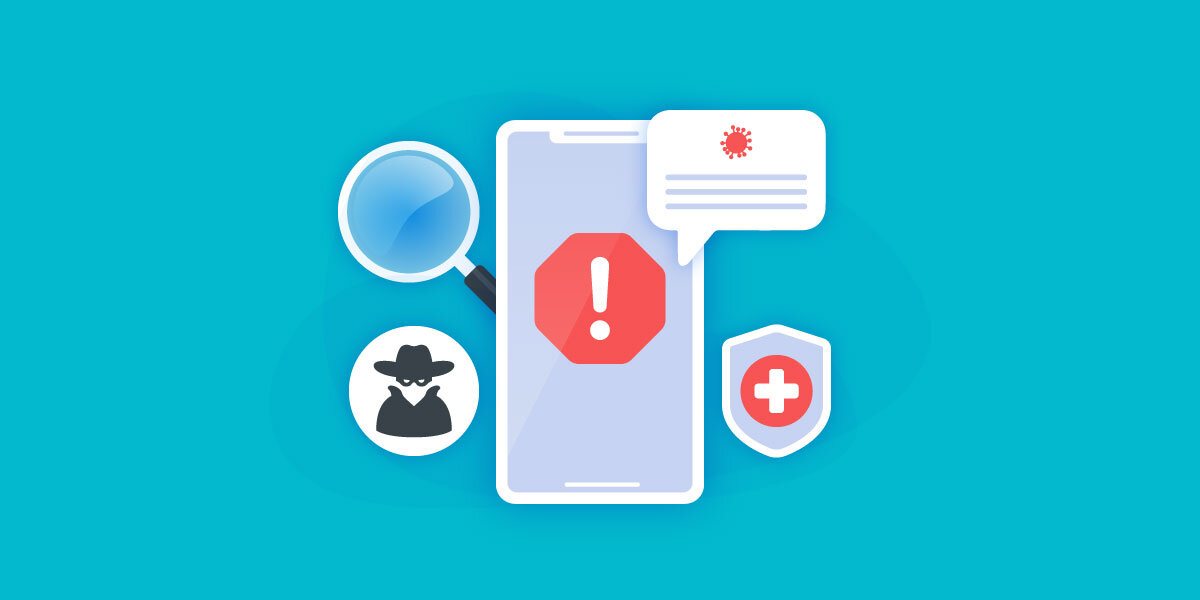SMS SPAM and COVID-19: What to look out for

The growing concern of the COVID-19 pandemic has, naturally, made people worry about their safety and well-being. While governments worldwide have been urging their citizens to stay informed and to stay safe during these trying times, the situation has also left many people vulnerable to a growing amount of cybercrimes.
Reports have surfaced, highlighting some of these scams which use the COVID-19 pandemic as a trick to take advantage of people’s fears and uncertainty. Many scammers are choosing to use text messaging, since it can make an impact so quickly. Our job is to show you what to look out for, and how to stay vigilant.
What’s Happening with SMS?
Announced on 17th, March 2020, Australia’s Cyber Security Centre (ACSC) warned that cybercriminal activities involving SMS scams are on the rise.
These “phishing scams”—under the guise of COVID-19 notifications and alerts—have been tricking recipients into downloading and installing unsafe applications on their mobile devices. According to the ACSC, these applications are capable of adding vulnerabilities to your device, allowing cybercriminals to easily steal sensitive information such as banking credentials and account details.
Australia is not an isolated case either, as reports have also shown that similar cybercrimes have been emerging across North America and East Asia—all centred around alerts and notifications involving COVID-19.
How Can You Protect Yourself?
Thankfully, organisations such as Telstra and Google are doing their part to remove malicious domains and fake numbers; reducing the effectiveness of most cybercriminal activity. Here at Burst SMS, we are doing our part to reduce spam by verifying mobile numbers, as well as filtering and reviewing campaigns before they are sent; removing any spammers found in the process. This is a process that we have always been a forefront on for all new campaigns.
In this endeavour to help protect you and your information, here are a few tips for you to keep in mind before opening an SMS.
- Businesses cannot contact you if you haven’t opted in. Not-for-profit associations and government organisations however, are exempt from some of these spam laws. If you receive a message from a number which you do not recognise, do a quick search for that number to see if it’s connected to the organisation.
- While inside a questionable message, inspect the link address. If you don’t recognise or trust the address, don’t open it. Trust your instincts.
- Inspect their tone of voice within the message. Is this consistent with how they normally communicate?
- If you wish to take a step further, contact that organisation directly to ask them about the message before clicking on anything inside. During the call, ask for their messaging line, and save that number in your phone.
- For the most reliable health updates, subscribe to information only from health authorities like the World Health Organisation, or your neighborhood Department of Health.
What if it’s too late?
If you think you have been a victim of a cybercrime, contact your financial institution immediately. File a report with your government by visiting: cyber.gov.au/report. Doing so will help prevent further damage to your personal accounts, and reduce the risk of having your personal information compromised.
Final Thoughts
As a company that specialises in SMS marketing, this is an unfortunate reality when it comes to emergencies such as the COVID-19 pandemic. We at Burst SMS pride ourselves in keeping both our customers and their businesses safe from crimes such as these. We implore anyone concerned about their safety to contact the proper authorities immediately.
If you, or anyone you know, have questions or concerns about the risk of interacting with SMS messages, feel free to reach out to us at helpdesk@burstsms.com; and for information and updates on the COVID-19 pandemic, visit health.gov.au for more information.
Stay safe and healthy.


